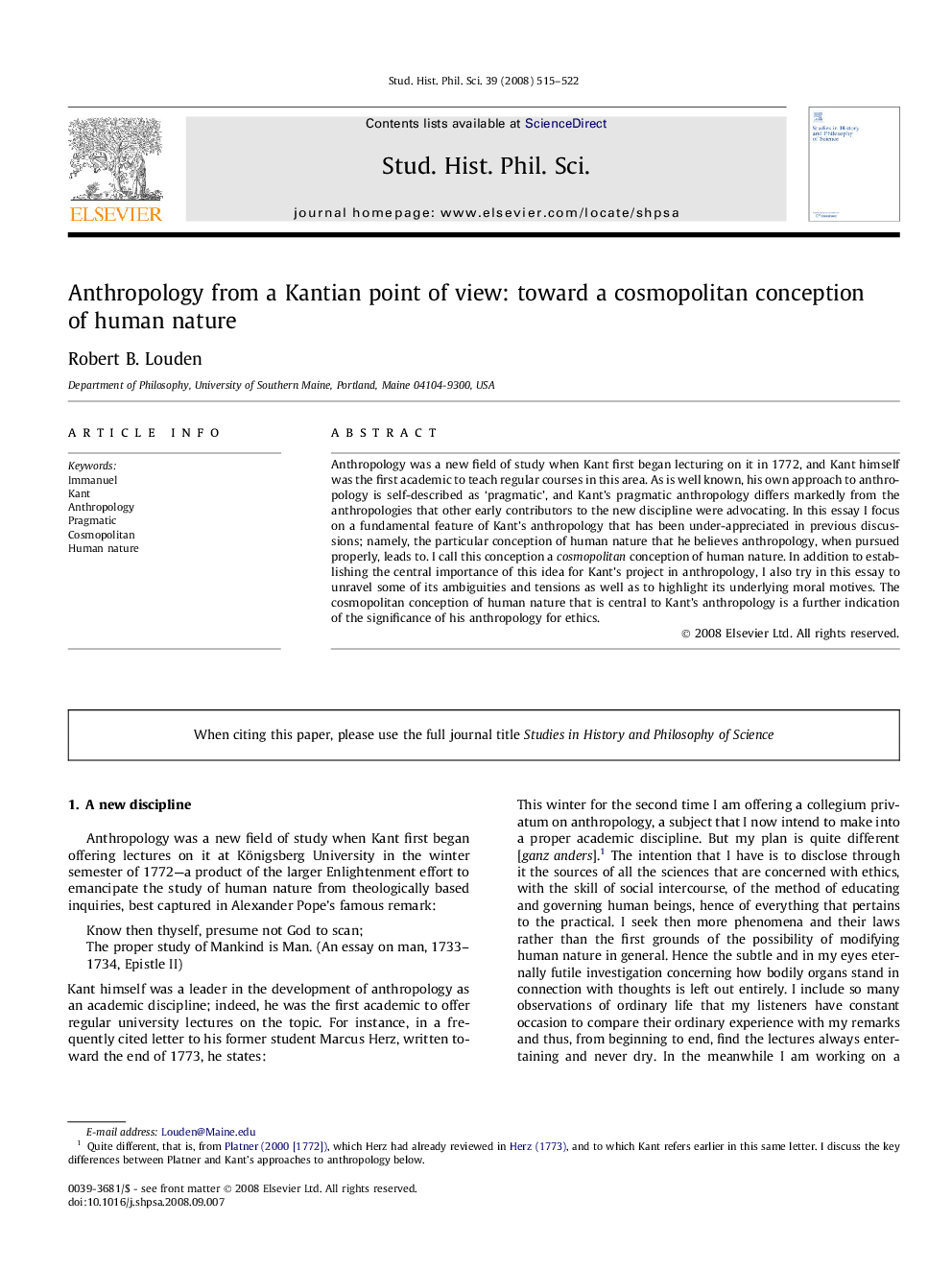| Article ID | Journal | Published Year | Pages | File Type |
|---|---|---|---|---|
| 1160704 | Studies in History and Philosophy of Science Part A | 2008 | 8 Pages |
Anthropology was a new field of study when Kant first began lecturing on it in 1772, and Kant himself was the first academic to teach regular courses in this area. As is well known, his own approach to anthropology is self-described as ‘pragmatic’, and Kant’s pragmatic anthropology differs markedly from the anthropologies that other early contributors to the new discipline were advocating. In this essay I focus on a fundamental feature of Kant’s anthropology that has been under-appreciated in previous discussions; namely, the particular conception of human nature that he believes anthropology, when pursued properly, leads to. I call this conception a cosmopolitan conception of human nature. In addition to establishing the central importance of this idea for Kant’s project in anthropology, I also try in this essay to unravel some of its ambiguities and tensions as well as to highlight its underlying moral motives. The cosmopolitan conception of human nature that is central to Kant’s anthropology is a further indication of the significance of his anthropology for ethics.
